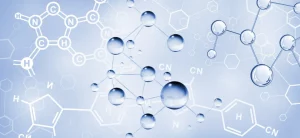liquid ammonia (class ii dangerous goods)
also known as anhydrous ammonia, it is a colorless liquid with a strong irritating odor. as an important chemical raw material, ammonia is usually obtained as liquid ammonia by pressurizing or cooling the gaseous ammonia gas for the convenience of transportation and storage. ammonia is easily soluble in water. when dissolved in water, it forms ammonium ion nh4+ and hydroxide ion oh-, which is alkaline and basic solution. melting point (℃): -77.7, boiling point (℃): -33.42 ℃.

liquid ammonia is mostly stored in pressure-resistant cylinders or steel tanks, and cannot coexist with acetaldehyde, acrolein, boron and other substances. liquid ammonia is widely used in industry, corrosive and volatile.
the world’s ammonia in addition to a small amount of coke oven gas from the recovery of by-products, the vast majority of ammonia is synthesized.

the main raw materials for the production of synthetic ammonia are natural gas, naphtha, heavy oils and coal (or coke).
ammonia (nh3[aq]) (class viii hazardous chemical)
often called ammonium hydroxide, refers to an aqueous solution of ammonia with a strong pungent odor and weak alkalinity.
colorless transparent liquid with strong pungent odor.
melting point (℃): -58 (25% solution)
. boiling point (℃): 38 (25% solution)
relative density (water=1): 0.91 (25% solution)
soluble in water, ethanol. prohibited with acids, aluminum, copper
the more ammonia content, the less density, 28% of the relative density of ammonia 0.91, 35% of the 0.88. ammonia has a certain corrosive effect, carbonized ammonia corrosive more serious. the corrosion of copper and aluminum is stronger, steel is worse, and the corrosion of cement is not great. it also has some corrosive effect on wood. (but the ammonium root, ammonium salt dissolved in water, often accompanied by heat absorption. (hydrolysis in aqueous solution is generally weakly acidic)

ammonium chloride (eight types of hazardous chemicals)
colorless crystals or white crystalline powder; odorless, salty and cool taste; moisture attraction. it is soluble in water, slightly soluble in ethanol. soluble in liquid ammonia, insoluble in acetone and ether. the aqueous solution is weakly acidic, and the acidity is enhanced when heated. it is corrosive to ferrous metals and other metals, especially more corrosive to copper, no corrosive effect on pig iron. decomposed by high temperature to produce toxic corrosive fumes. industrial grade ammonium chloride 99.5%.
common four: tetrabutyl ammonium chloride, colorless or light brown crystals. easily deliquescent. soluble in water, ethanol, chloroform and acetone, slightly soluble in benzene and ether. it is irritating. melting point: 83~86℃.
![DMAEE CAS1704-62-7 2-[2-(Dimethylamino)ethoxy]ethanol](http://dmaee.cn/wp-content/uploads/2022/11/cropped-logo1.jpg)